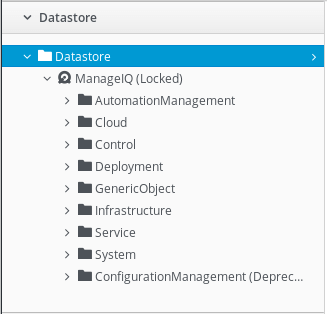ManageIQ natively supports Ansible automation since Fine release. So it is possible to automate resources in infrastructure or cloud. Previously it was using Automate Datastore, for that scripts were written in the Ruby language.

To start using Ansible inside ManageIQ, you have to enable Embedded Ansible server role in configuration. It will install ansible-tower-server without web interface. This takes time depending upon internet speed and appliance specifications. Also, this option uses Ansible Tower only through API.
The installation also handles creation of the database schema and we require to retrive database password before the first run of ansible-tower-setup. We also need a license. You can get a license on Ansible website: https://www.ansible.com/license
Note: It requires an Enterprise license. License is a JSON formatted structure. We have to extend the license file to accept the End User License Agreement(EULA): Add “eula_accepted”: “true” in JSON
On this thread, mentioned all the steps required to setup Embedded Ansible. If you want to access Tower UI, I would suggest installing tower separately and using Tower provider integration rather than embedded ansible role.
I know this is a bit tedious process, to get rid of this I would suggest to use ManageIQ Gaprindashvili release. It uses AWX instead of Ansible Tower, which doesn’t require a license.
Once you complete setup ie. installation of ansible, you need to check EVM status for the Embedded Ansible Worker. If status of EmbeddedAnsibelWorker is started, then you are done with Embedded Ansible setup. To check, run these commands in the appliance,
$ vmdb
$ rake evm:status
Note: To see errors in this process, check evm log as:
$ vmdb; less log/evm.log
Once Embedded Ansile setup is done, you can add playbooks from GitHub repository to automate.